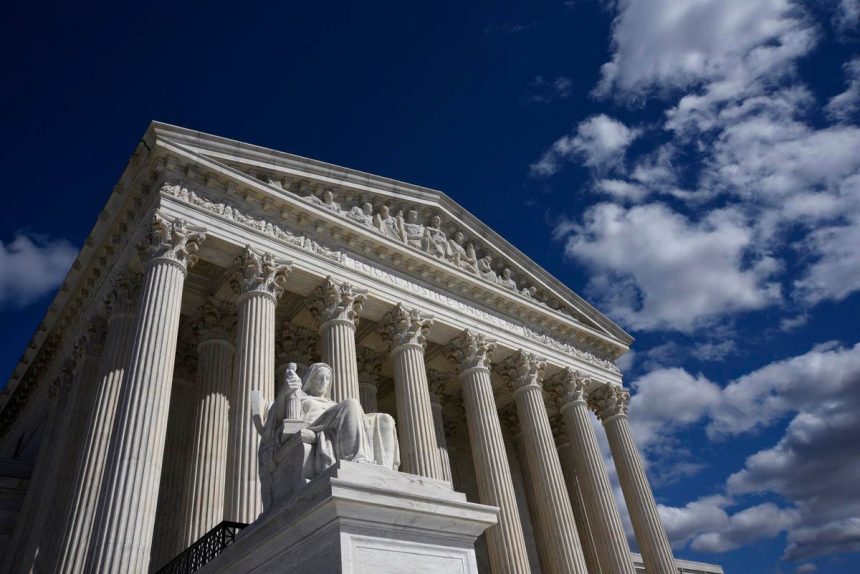You may not keep up with politics or legal news, but you’ve likely heard about the U.S. Supreme Court’s recent decisions. Many of these have proven to be controversial if nothing else. One of these decisions outlaws the use of race as a factor in the college admissions process and has received a lot of press. The other decision deals with workplace accommodations due to religious beliefs and hasn’t been as widely discussed. However, there’s a good chance both of these cases will affect workers.
Affirmative Action for Workers
In Students for Fair Admissions, Inc. v. President and Fellows of Harvard College, the Supreme Court took on the question of whether Harvard College and the University of North Carolina’s consideration of race during the admissions process was lawful under the Equal Protection Clause of the Fourteenth Amendment.
The Supreme Court concluded that it was not lawful for several reasons. One reason was that neither school used race as a factor in a sufficiently objective way. Additionally, the Supreme Court found that each school used race in a manner that hurt certain groups of students because of their face, was used to stereotype applicants and did not have end dates for which the race-based policies could end.
This case only applies to the educational realm, so it’s not legally binding on employers. Yet there are at least two ways in which employers and workers may feel the impact of this case.
First, risk-avoidant employers may try to prevent lawsuits by no longer using race as a factor in their hiring decisions. Even if their diversity, equity and inclusion policies or affirmative action programs are legal, some employers will take this approach to reduce the chances of getting sued.
Second, many employers will choose to change, rather than eliminate, how they consider race in the employment context. Even if Students for Fair Admissions was directly applicable to employers, it probably wouldn’t prohibit all DEI initiatives or AAPs. This is because most employers typically use race in less direct ways during the recruiting and hiring process.
For example, a business might want to hire more people of color. Instead of asking its human resources department to consider race during the hiring process, it may simply ask its recruiters to spend more time at colleges and universities with more racially diverse student populations.
Or instead of asking job applicants for their race, an HR manager might ask them how race has affected their lives. The Supreme Court made it very clear that “nothing in this opinion should be construed as prohibiting universities from considering an applicant’s discussion of how race affected his or her life, be it through discrimination, inspiration, or otherwise.” Presumably, this concept could also apply to employers.
In situations where an employer fails to hire enough workers to sufficiently increase the diversity of its workforce, the employer could look to change any existing company policies that inadvertently make it harder for people of color to apply or get hired. The employer could also start posting job openings in different areas to attract individuals they didn’t previously recruit.
One thing the employer can’t do is use race quotes, as that’s almost guaranteed to be successfully challenged in court.
Religious Accommodations at Work
The Groff v. DeJoy case has received little media attention, at least compared to some other Supreme Court cases. One reason for this is because it’s not a very controversial decision.
Gerald Groff worked for the U.S. Postal Service, but he was a Sunday Sabbath observer and refused to work on Sundays. This wasn’t a problem at first, as Groff’s postmaster could accommodate Groff’s religious scheduling needs. But after changes were made to how workers were scheduled, the postmaster told Groff that he would need to begin working on Sundays during the peak season.
Groff tried to work around the new scheduling requirement by transferring to a different postal station. That didn’t work for long, as the new location started requiring him to work on Sundays. Unfortunately for Groff, the only way he could avoid working on Sundays was if he could find someone to cover his Sunday shift.
Groff asked to transfer to a position that didn’t require Sunday work, but no such position was available. Groff resigned as a result of this scheduling issue and he sued. One of his major arguments was that his employer failed to accommodate his religious beliefs.
The legal issue in Groff’s case was whether the “de minimis” standard applied when it came to whether or not a request for a religious accommodation placed an undue burden on the employer.
Under Title VII of the Civil Rights Act of 1964, a covered employer had to accommodate a worker’s religious beliefs, as long as the accommodation didn’t impose an undue hardship on the employer. And an accommodation created an undue hardship on the employer if it amounted to more than a “de minimis” cost to the employer.
In practice, this de minimis standard meant that almost any time an employee asked an employer for a workplace religious accommodation, the employer could deny that request as long as the accommodation imposed at least a small or minor inconvenience on the employer. And it wasn’t hard for most employers to find a way for religious accommodation requests to reach this threshold.
In Groff, the Supreme Court unanimously held that this de minimis standard would be replaced with a substantial burden standard. In other words, a religious accommodation would create an “undue burden” on the employer only if it amounted to a substantial burden in the overall context of the employer’s business.
The Supreme Court didn’t provide many details as to what qualifies as a substantial cost or burden. However, it did say that such analysis should be completed in a “commonsense manner.” Also, any religious animosity from coworkers could not be considered by the employer. Additionally, an employer had to think about multiple ways to accommodate the employee.
So if an employee wanted Sundays off, the employer couldn’t deny the request because it required another employee to work overtime. The employer would also have to consider if voluntary shift swapping was a possibility or if the employee asking for the religious accommodation could be transferred to a different position that didn’t require Sunday work.
Given this lack of clarity, there will probably be plenty of religious accommodation employment litigation for the foreseeable future. This will be necessary for the courts to further define what types of accommodations constitute a substantial cost on the employer.
One potential unforeseen consequence of this case is that there could be a greater importance placed on the genuineness of the employee’s religious beliefs. In the Groff case, his religious beliefs were not questioned. But what if instead of asking to take Sundays off (considering a certain day of the week as a day of rest has been a common religious tenet for centuries if not millennia), an employee chooses not to wear a mask or receive a vaccine claiming it went against their religious beliefs?
In most employment disputes involving religious accommodations for workers, whether an employee’s religious beliefs were honest or not wasn’t a critical question. This was often because the employer could usually rely on the de minimis standard to refuse the accommodation (assuming it wanted to deny the request). But now that employers must abide by the substantial cost standard, it’ll be interesting to see if the genuineness of employees’ religious beliefs gets challenged by employers more often.
Bottom Line
Both of these Supreme Court cases will affect most workplaces and an increase in lawsuits can be expected. This additional litigation will help employers and employees further delineate their legal obligations and rights.
Read the full article here










